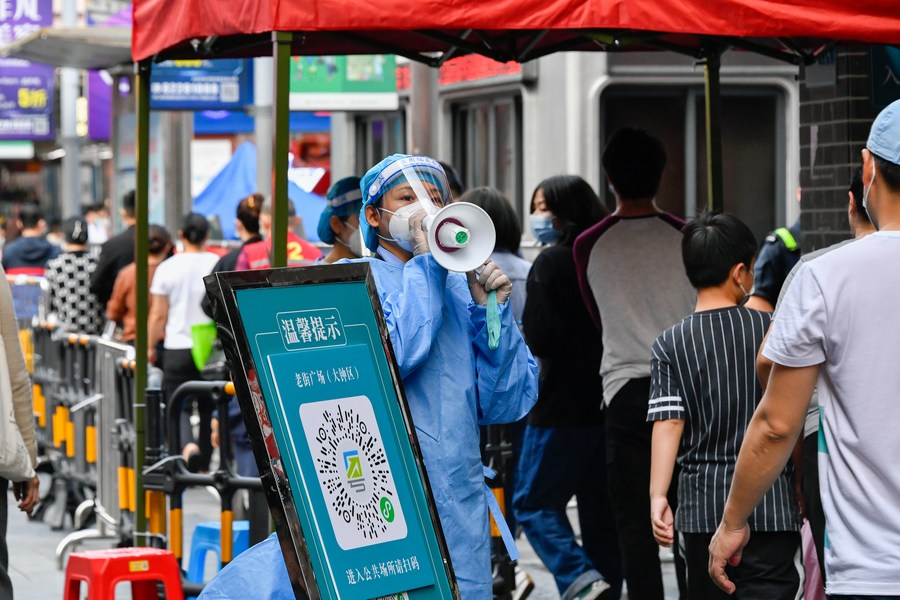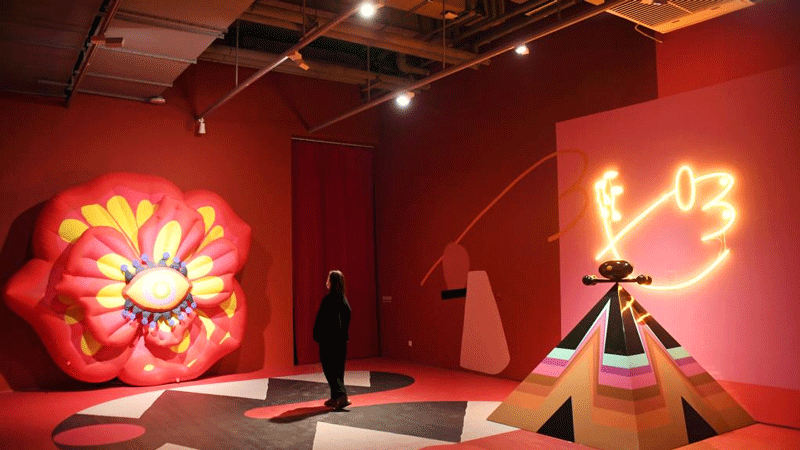Testing booths turned into fever clinics as China battles COVID-19

The file photo shows a volunteer in protective gear guiding citizens at a nucleic acid testing site in Luohu District of Shenzhen, south China's Guangdong Province, March 13, 2022. (Photo by Chu Yan/Xinhua)
SHENZHEN, Dec. 21 (Xinhua) -- Nucleic acid testing booths are being converted into consultation rooms for fever patients in Shenzhen, Guangdong Province. These changes are among the latest efforts by Chinese cities to cope with rising numbers of COVID-19 cases.
To relieve the mounting pressure on hospitals, several districts in the southern Chinese city are transforming their testing booths into consultation rooms that can receive fever patients and prescribe basic medicines, according to officials and residents.
In Futian District, 53 such booths have been put into use as fever consultation rooms, according to the district's health bureau. In Bao'an District, 66 community health centers have engaged in similar projects to reuse idle testing booths.
The 4-square-meter consultation rooms can accommodate one doctor and one patient at a time, and are equipped with disinfection equipment and a ventilation system. Their strategic locations have made it convenient for residents experiencing fever to seek treatment, said Chen Biqin, director of a community health center in Futian.
Many nucleic acid testing booths were made redundant after China scaled back mandatory testing. In addition to the consultation rooms, some have also been repurposed as vaccination rooms, according to the company that supplies the booths in Shenzhen.
Facing an influx of fever patients in recent days, many Chinese cities have rushed to open more fever clinics and stock up on medicines. Guangzhou, capital of Guangdong Province, has increased its number of fever clinics in hospitals from 114 to 199, as experts estimate the city's COVID-19 outbreak will peak in early January.
Last week, a temporary fever clinic with four consultation rooms was put into use at the Guang'an Gymnasium in Beijing's Xicheng District. It is equipped with a temporary pharmacy and medicine storehouse, providing sufficient antipyretic drugs and materials.
Photos
Related Stories
- Fever clinics set up in Chinese cities to provide timely treatment to patients
- What should be the yardstick to assess countries' COVID responses?
- Beijing revs up supply of medicines, services for virus-infected residents
- Interview: Protection of elderly, patients with underlying conditions priority in COVID-19 control: expert
- China pushes for solid implementation of its 10 new measures of COVID-19 response
- China further optimizes COVID-19 response with new measures
Copyright © 2022 People's Daily Online. All Rights Reserved.









